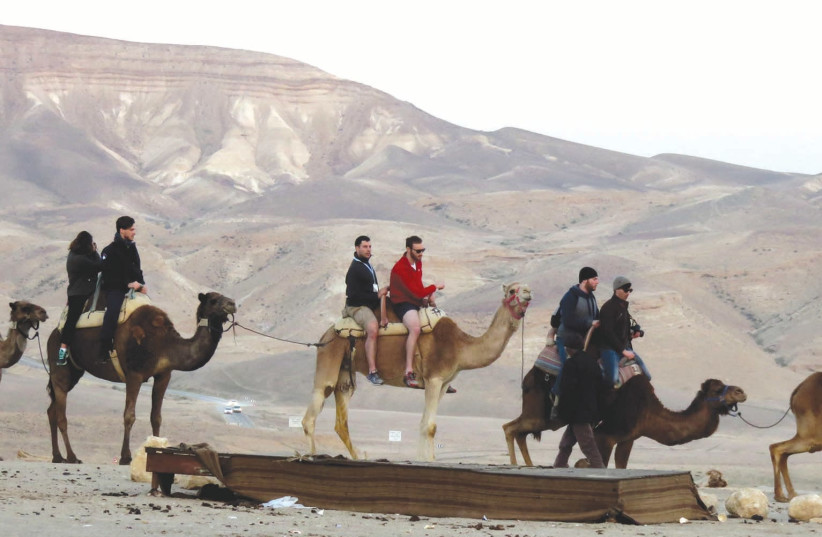One of the highlights of many Birthright Israel participants over the years was a ride on a camel, many times while visiting Bedouin villages across Israel. But a source close to the organization that brought close to a million young Diaspora Jews to Israel told The Jerusalem Post that they are currently accessing this program, mainly because many of the participants feel that there is animal abuse while riding on the camels - an animal that Israel used to be very identified with.
The Post has learned that many of the operators and groups have already stopped taking their participants on camel rides with some taking them to farms where they feed them - but don't actually ride on them. A source in Birthright Israel approved that there is a discussion within Birthright headquarters on whether to officially cancel the ability for groups to go on camel rides.
Birthright Israel outsources all of its activities to Israeli educational tourism companies but it keeps very close monitoring on the content and guidelines.
The Taglit standard

According to its guidelines, there are certain sites that every group has to visit such as the Kotel or Masada. In the past, all of the groups visited Bedouin villages. If Birthright decides to cancel this option, the tourism companies won't be able to offer camel rides to the participants. A source in the organization said that the decision hasn't yet been finalized but that in the near future, they will make their final decision.
The camel is mentioned in the Bible about 50 times, and is mentioned as a domesticated animal used for transportation.
